Pollinator sanctuary
Sanctuary /ˈsaŋ(k)tjʊəri/ (n). A place offering protection and safety; a shelter. A source of help, relief, or comfort in times of trouble.
Pollinator Sanctuary was commissioned by Somerset Art Works at Deer Leap Nature Reserve in the Mendip Hills Area of Outstanding Natural Beauty (AONB). The site was selected for its protected wildflower grasslands, surrounding organically managed fields, and public access.
The installation collaborates with nature, including living mycelium (fungi roots), wild pollinators, and plantlife. Fungi extracts can protect bees from viruses leading to Colony Collapse Disorder. This project combines these ideas through sustainable materials that communicate shelter, interconnectedness, hope, and innovative approaches to care and repair for our natural world.
SAW’s 2022 biannual Art Weeks Festival engaged the public in learning about the project and empowered people to make their own pollinator sanctuaries inspired by the installation.
The sculpture was moved in November 2022 to its permanent location at Bath Spa University’s Main Campus in the Walled Garden. It can be visited and engaged with by students, grounds staff, and the public.
Follow behind-the-scenes and latest event updates #pollinatorsanctuaryart Have you been to visit Pollinator Sanctuary? Please share your comments and questions at the bottom of this page.
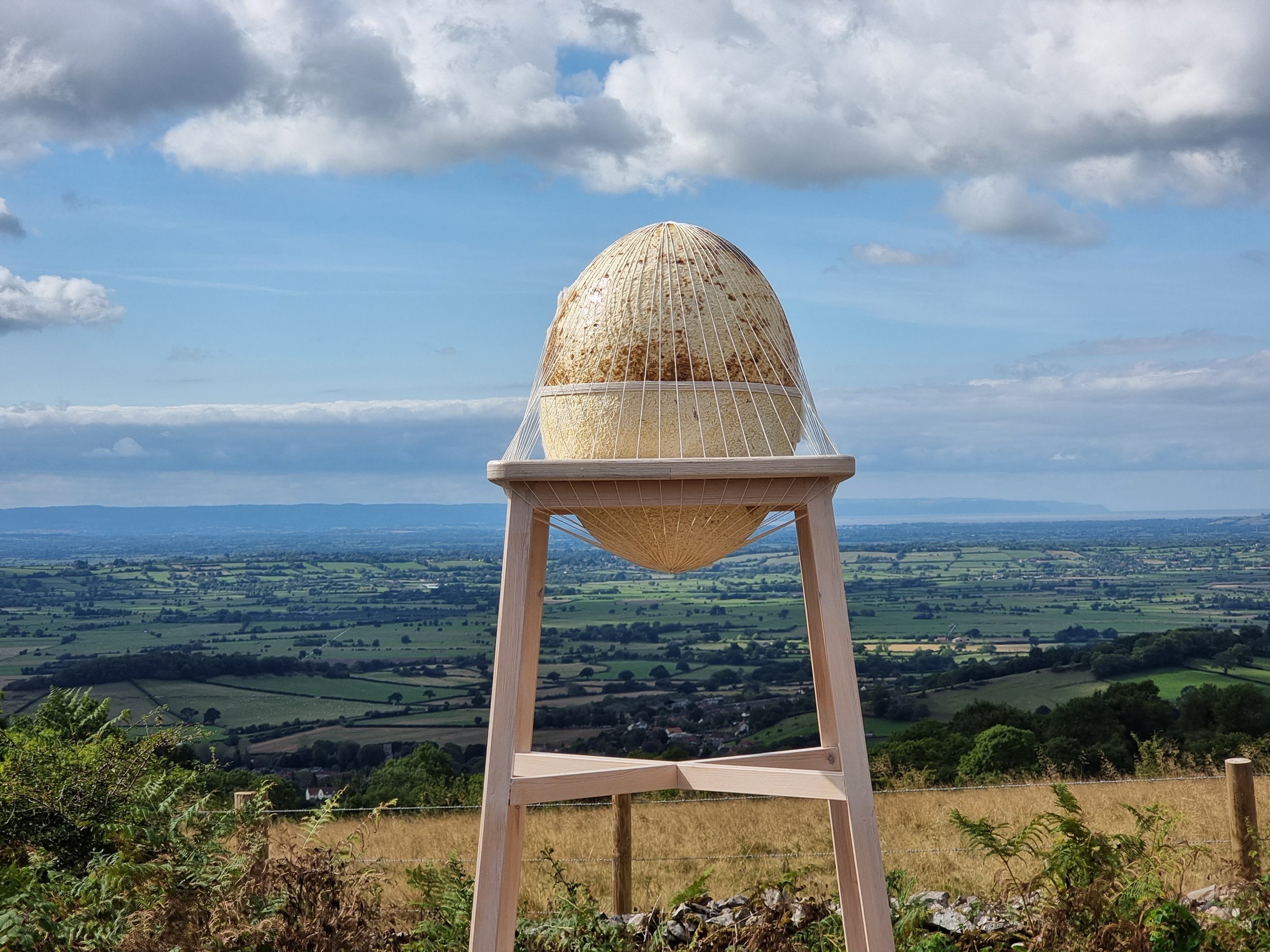
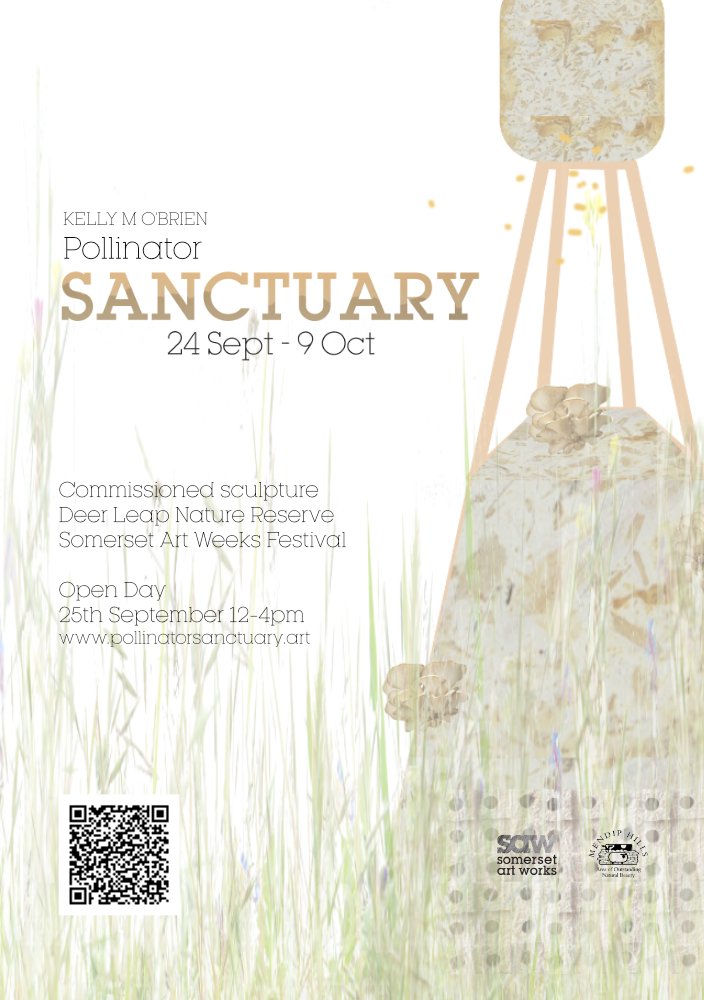
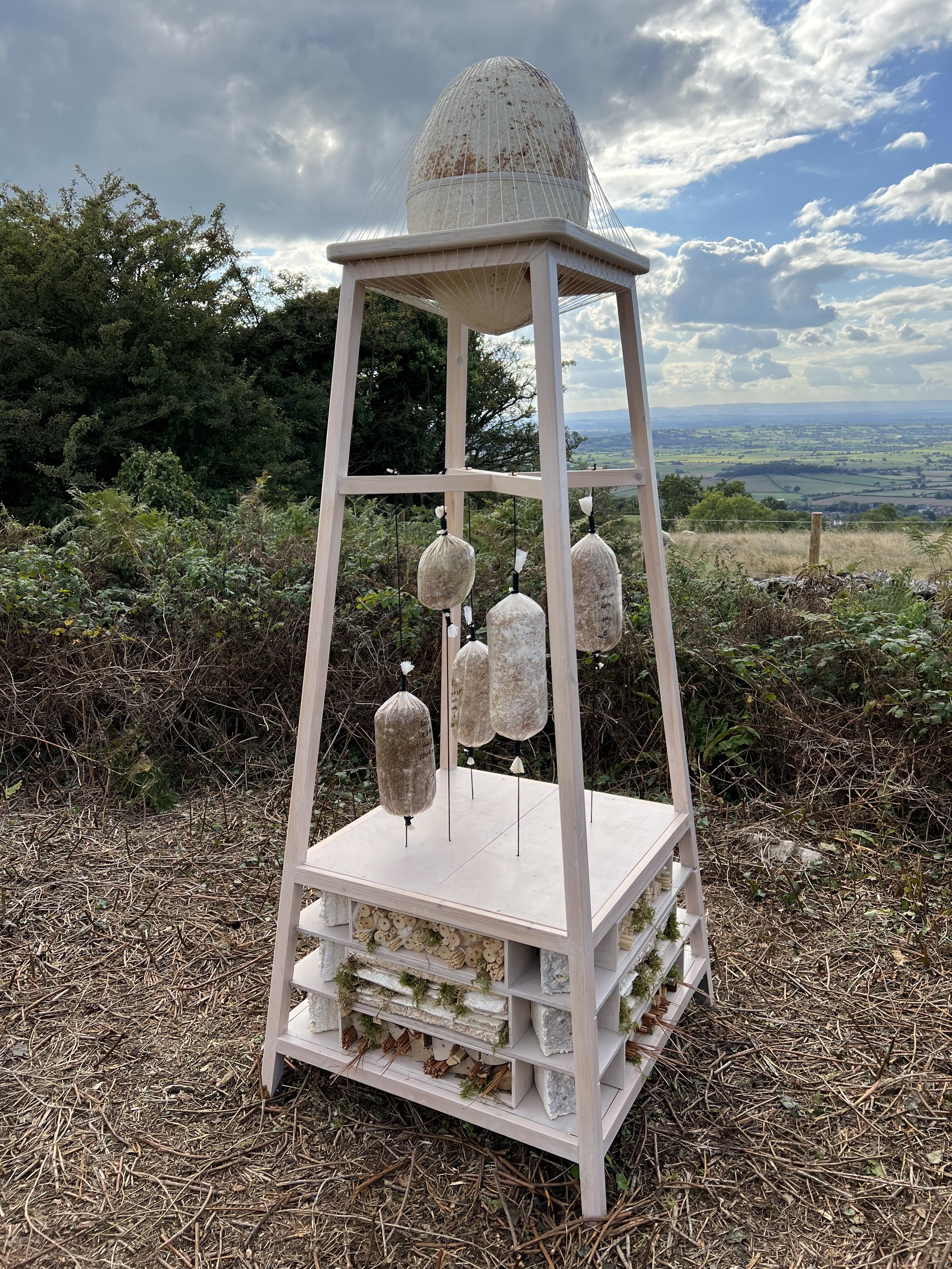
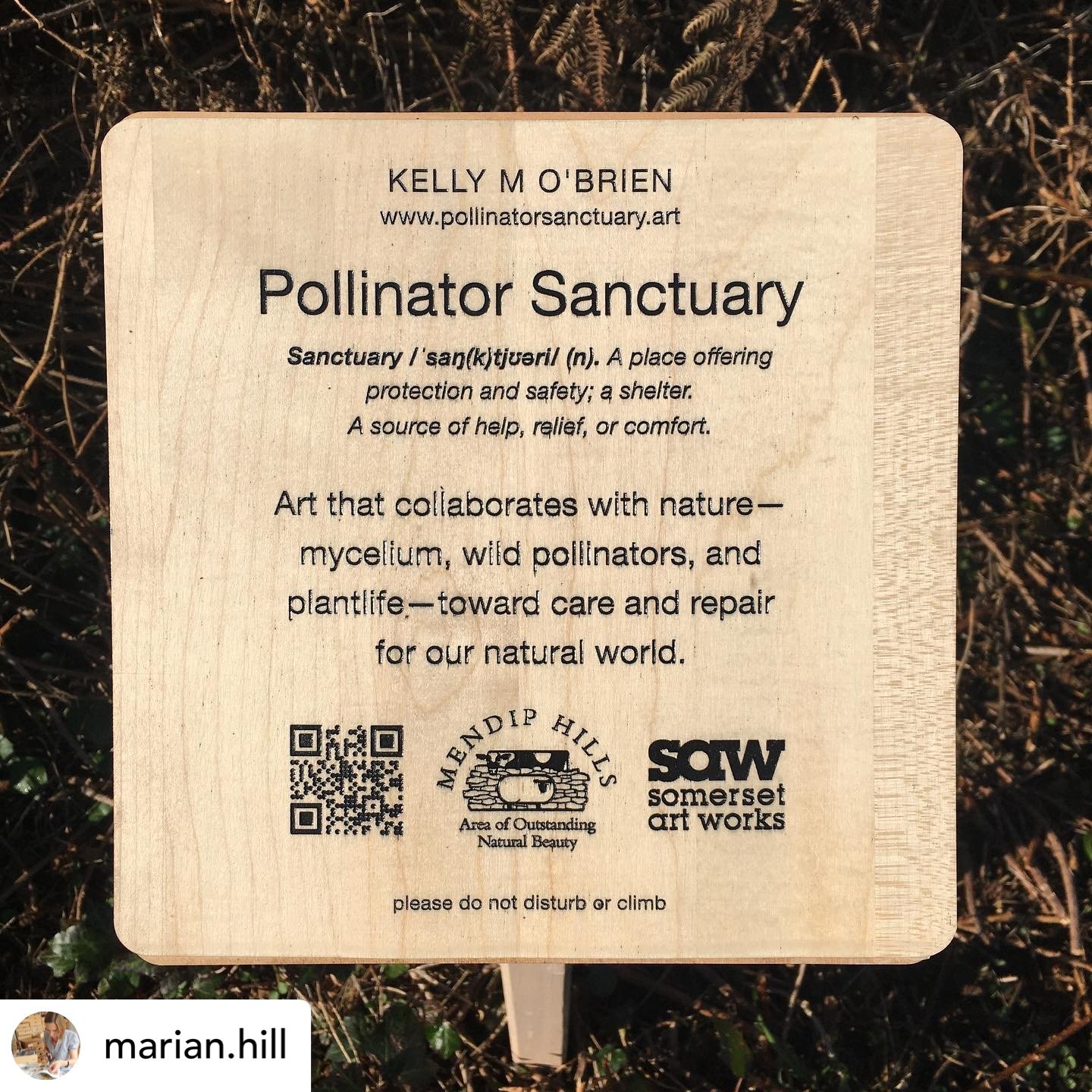
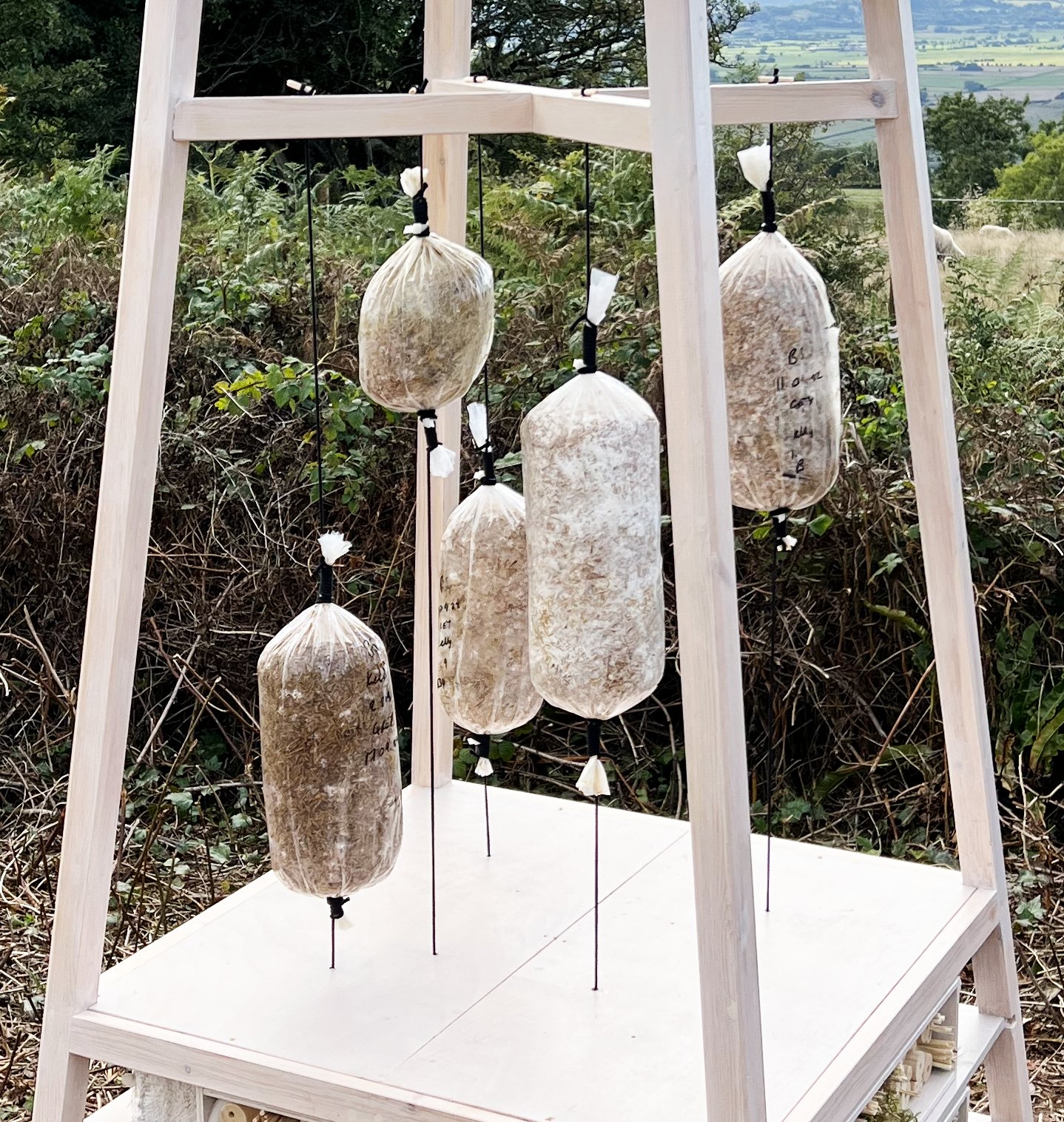
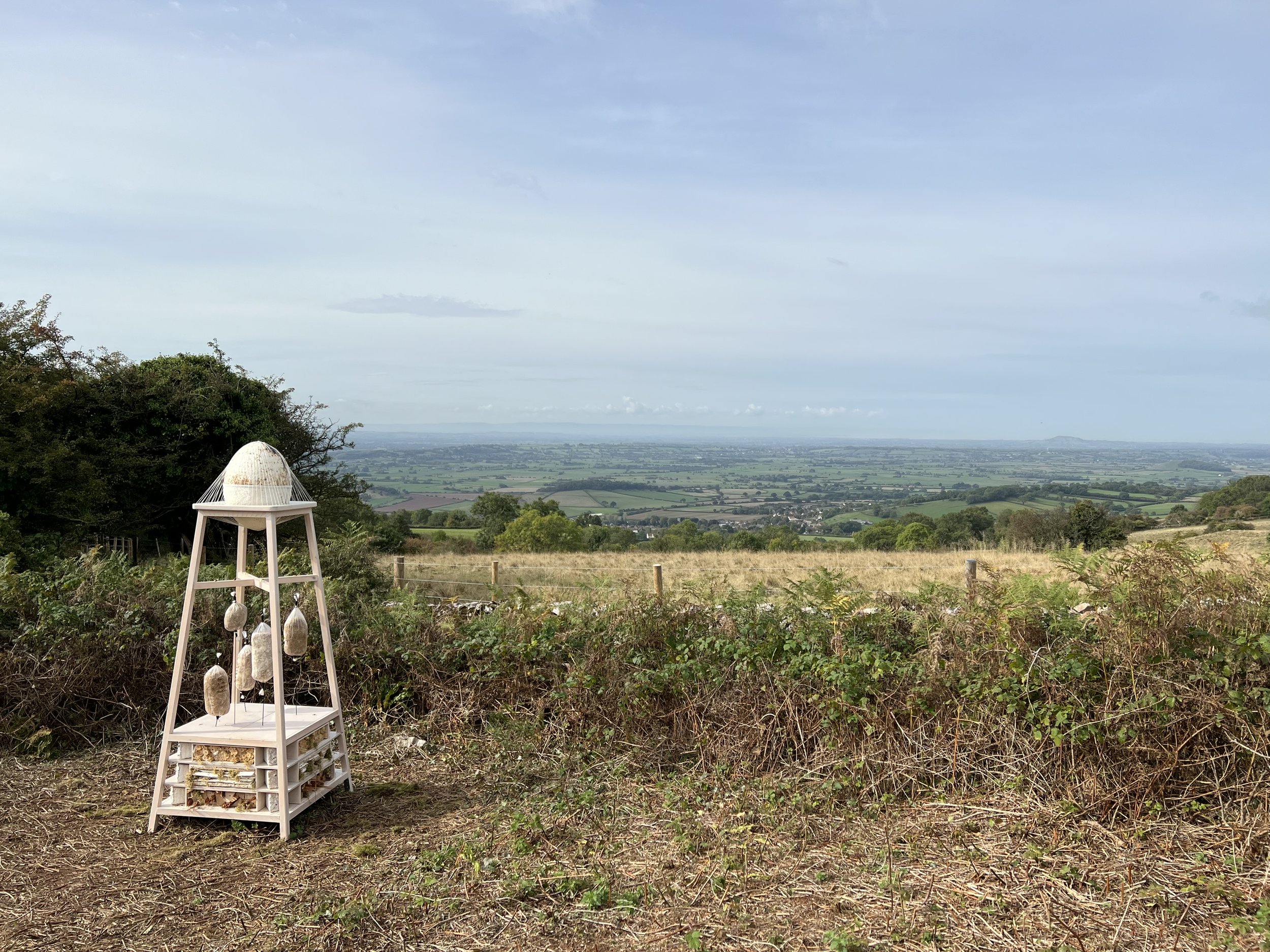
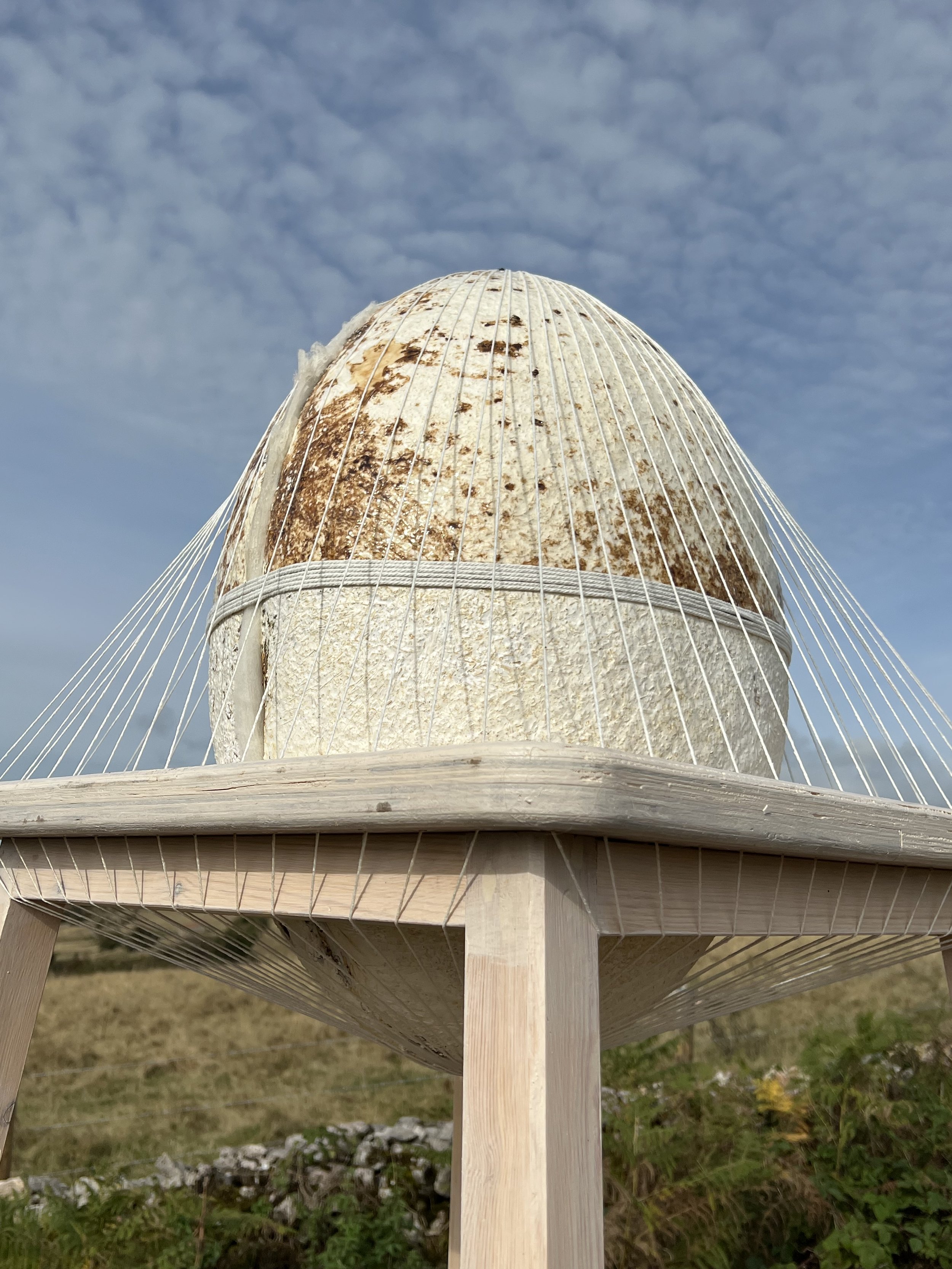
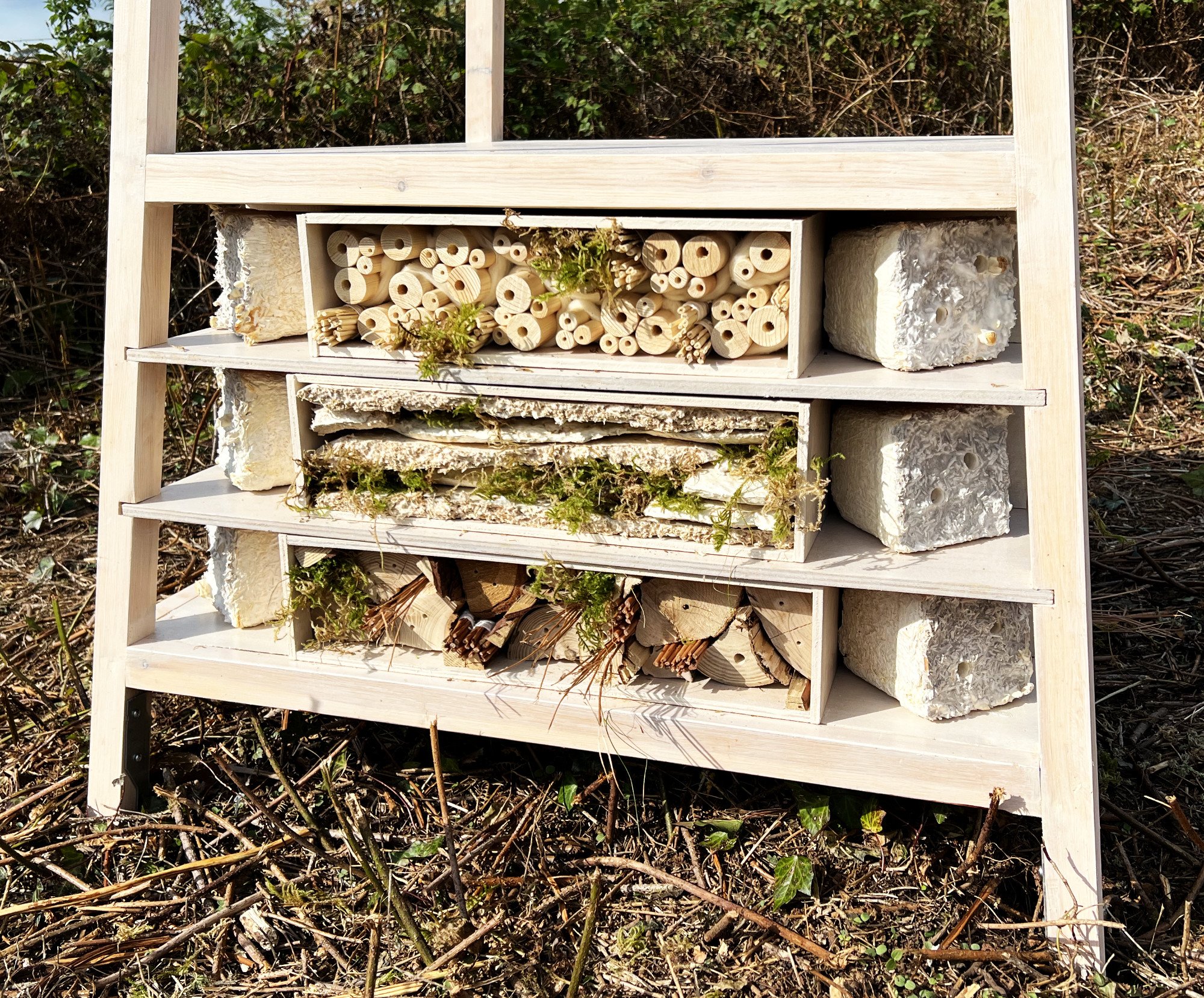
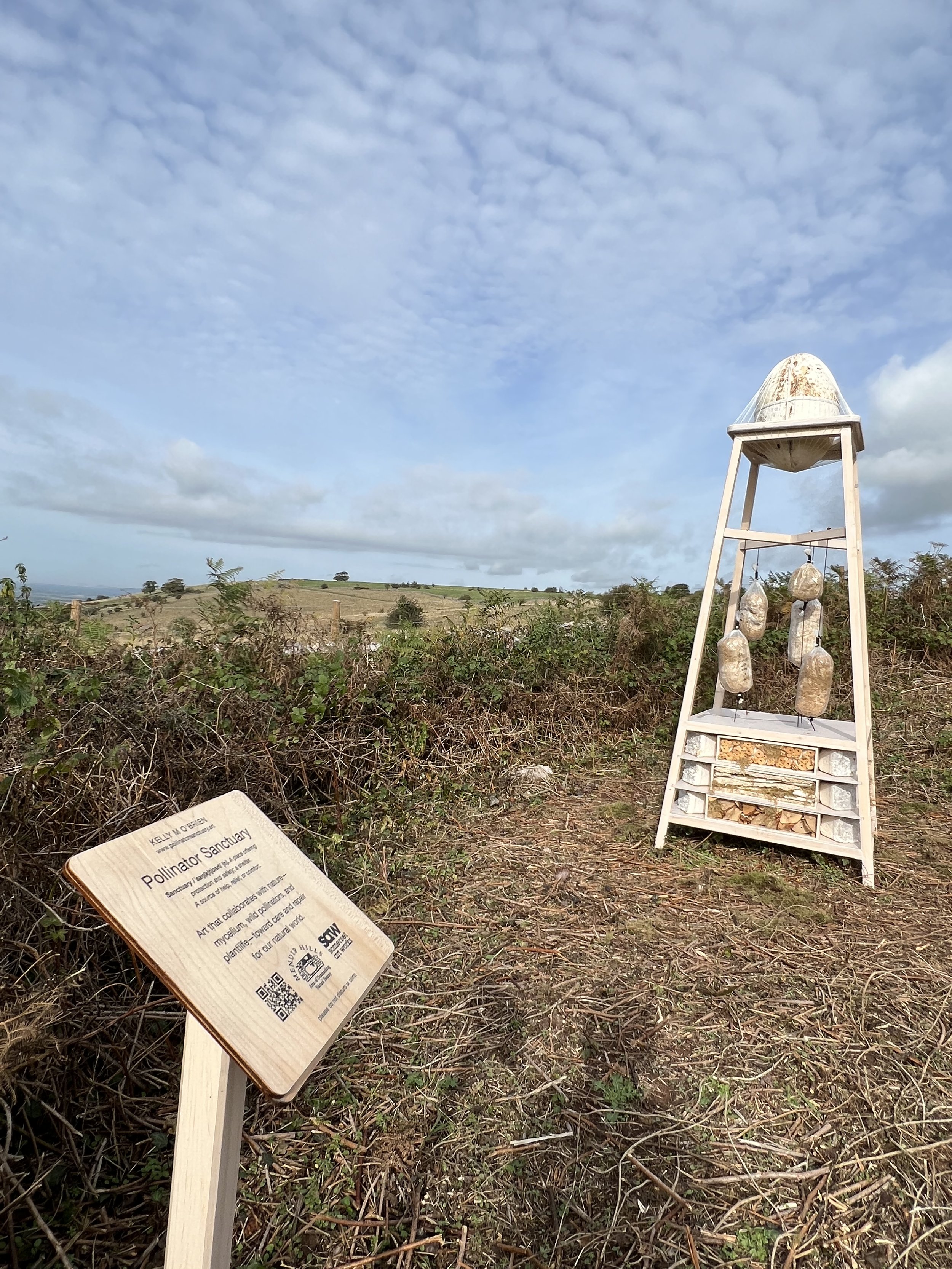
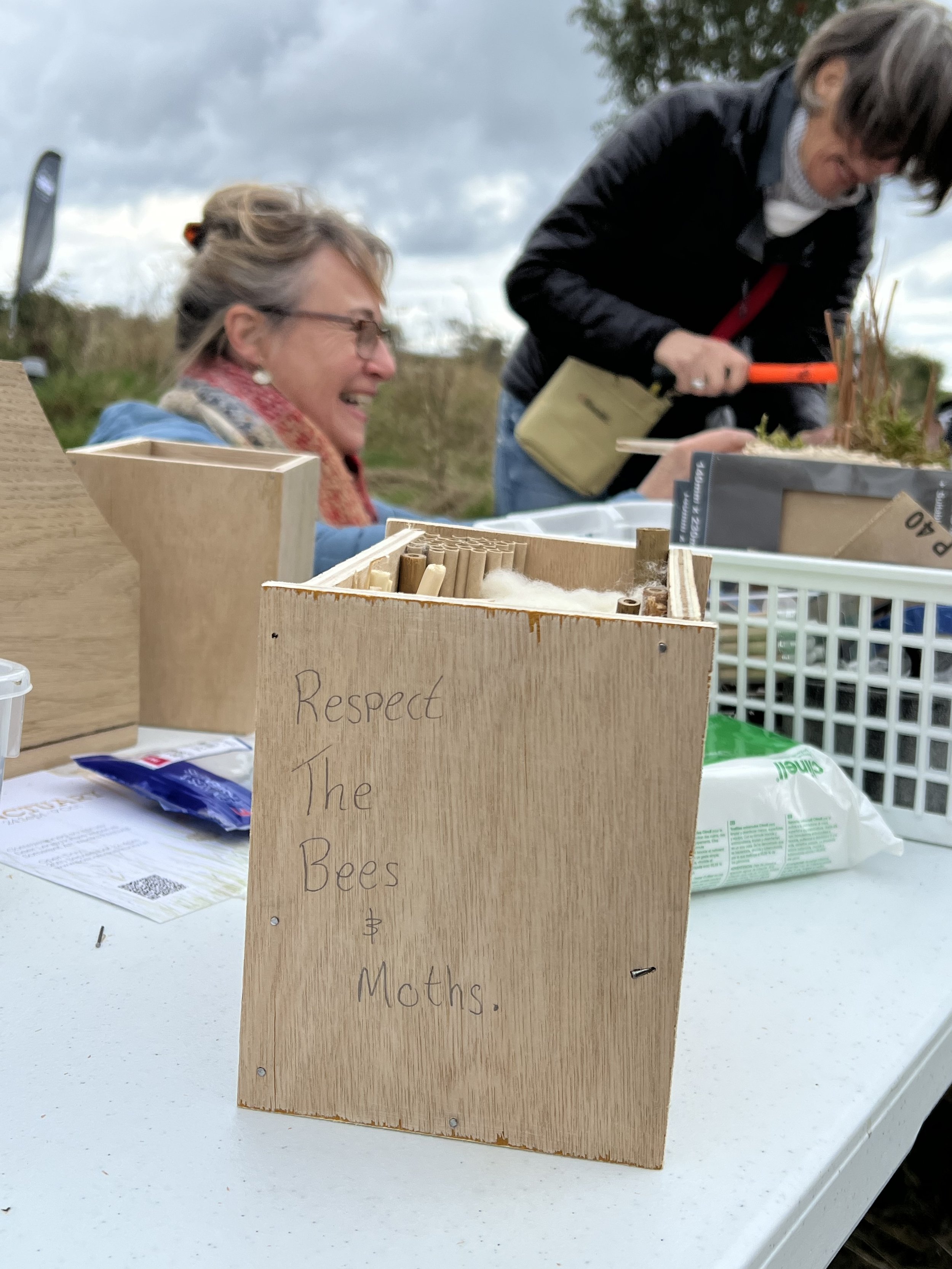
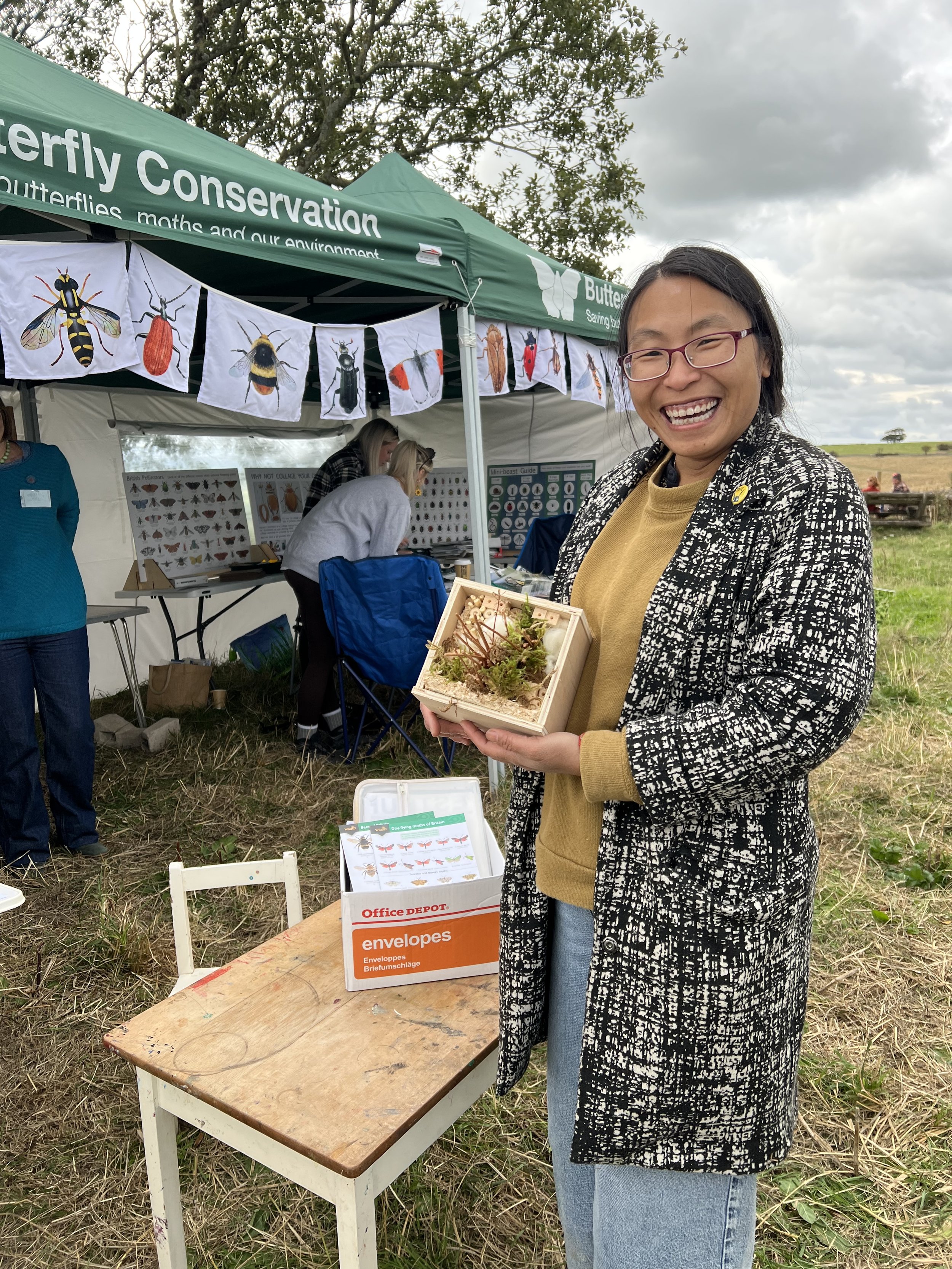
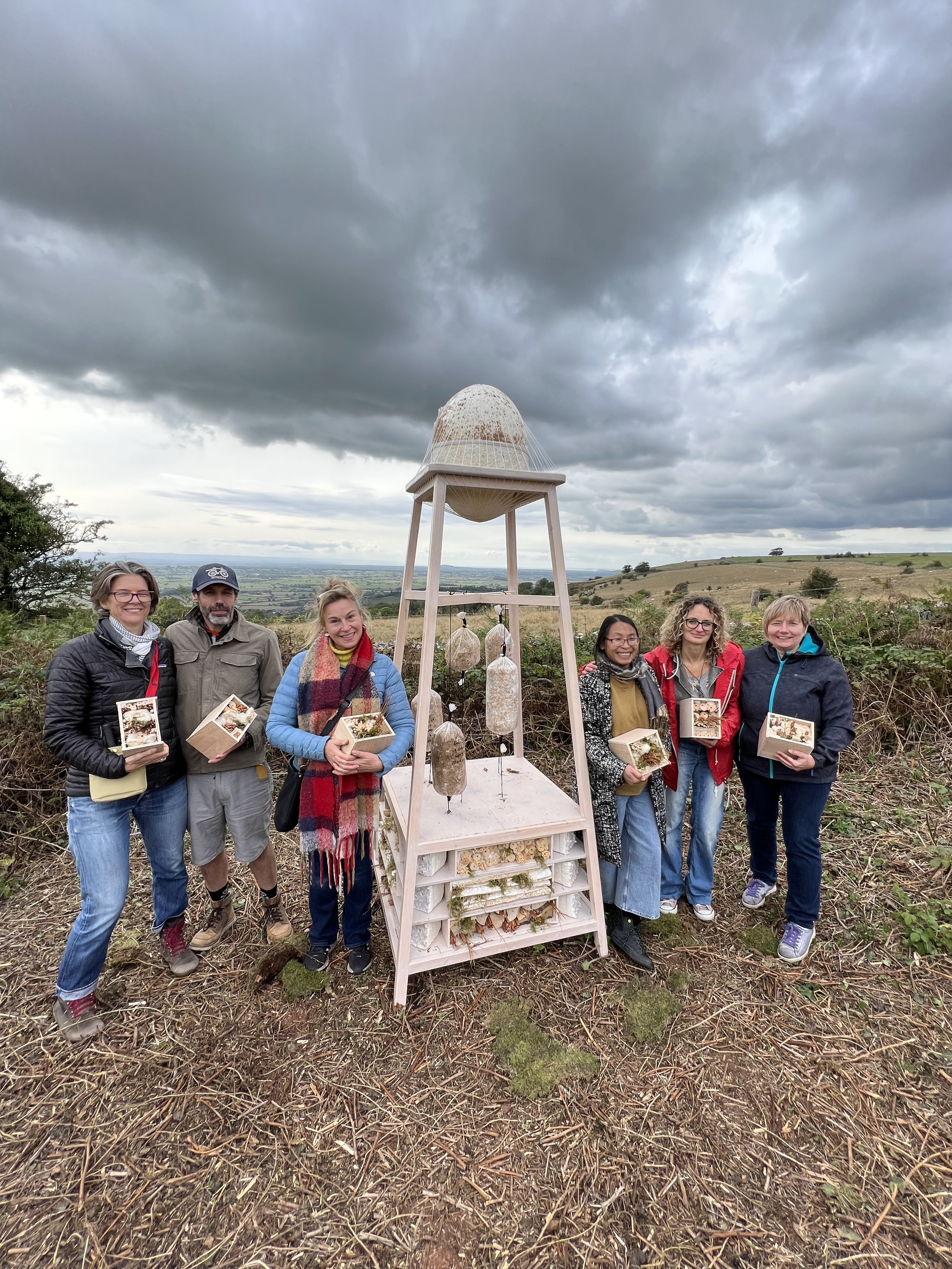
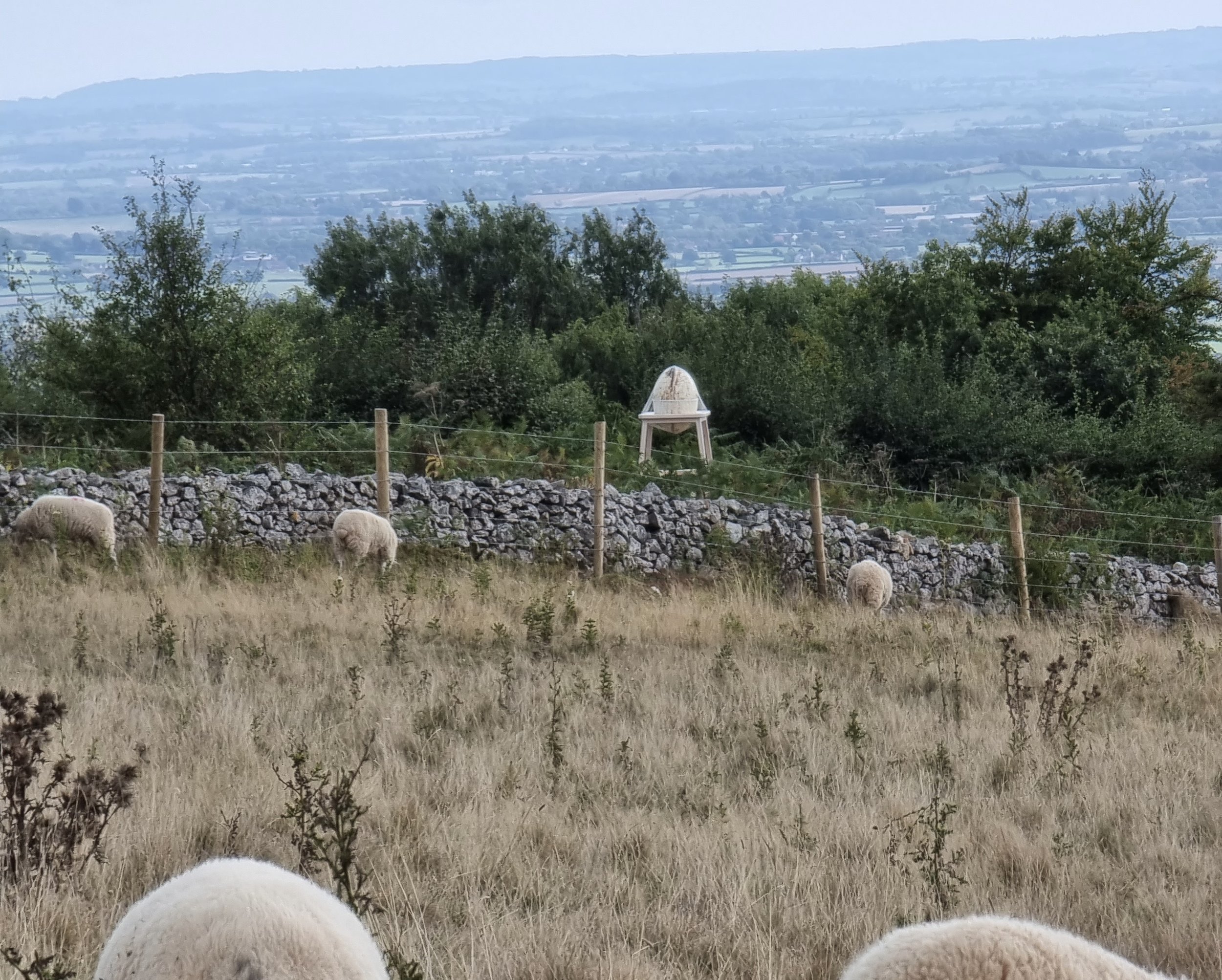
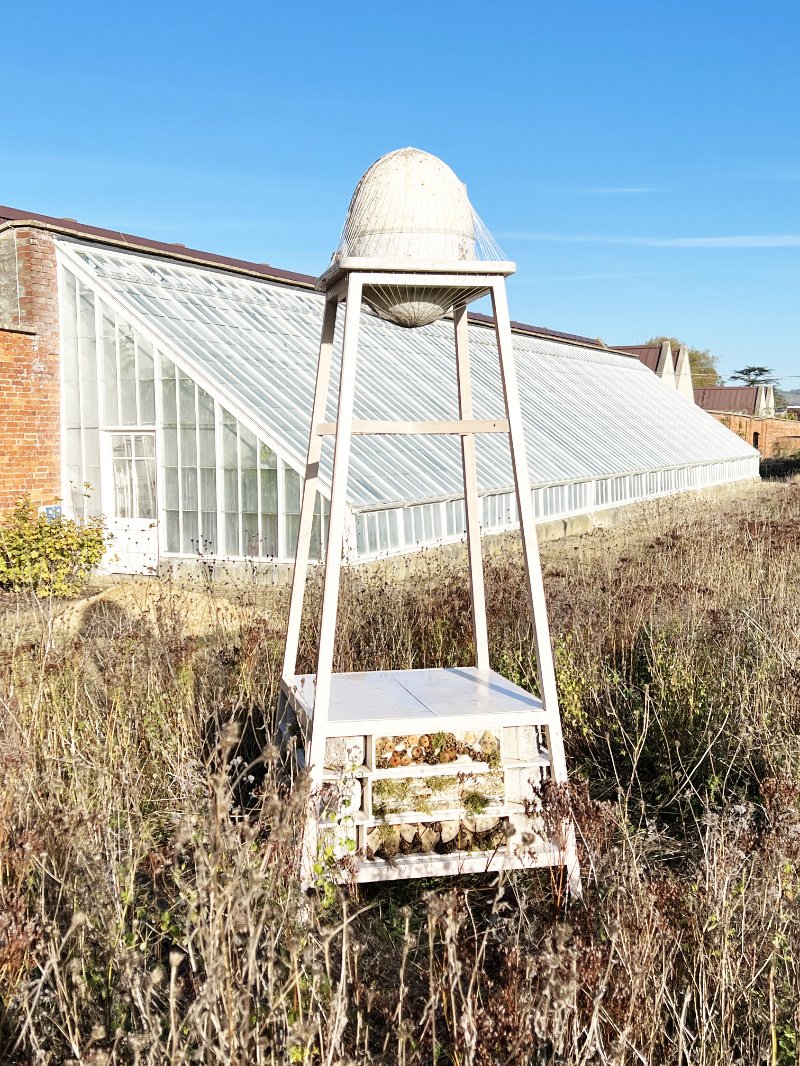
Thank you to Evolver Magazine and artist-writer Fiona Robinson for this lovely article about the project!
Honey bee hive
A hive made of cast mycelium tops the sculpture.
Wild honey bees seek natural hollows of approximately 40 liters of space with a small opening and shelter from the elements.
Mycelium has natural properties of insulation and water resistance. A plant-based bioresin coats the roof for added waterproofing.
There is an old brood comb stitched into the cavity to entice a wild colony to make this hive their home. Bees swarm in the Spring when their living quarters becomes too cramped—part of the colony departs with the old queen to find suitable shelter for their new brood.
fruiting fungi
The middle level is suspended mushroom fruiting bags. A central point of this project is the connection between fungi and bees. A hopeful property of fungi is that certain species can protect bees from viruses leading to Colony Collapse Disorder. Pollinator Sanctuary brings these ideas together by using cast Ganoderma mycelium as shelter for bees.
Commercial growers use the bag method in highly controlled conditions—and you can too using a readymade grow-kit or preparing your own materials. Check out the resources at the bottom of this page for more information and suppliers.
For instructions for your GIY fungi kit click here.
solitary bee nests
The ground floor is nesting for solitary bees, by far more prolific pollinators than honey bees. Solitary and bumblebees are quite discerning about where they nest. With guidance from the Field Studies Council and other resources (see below), my aim is to offer ecologically sound nesting.
During the many hours it took to cut, sand, drill, wrap, tuck, and stitch all of the nesting elements into place I kept thinking about what the bees might want. What would feel inviting, safe, cozy, and comfortable to them? How might I build them a nest they’d be happy to call home?
The process has been a meditation on what sanctuary and home might mean for these tiny nonhuman beings.
Attention is the beginning of devotion.
-Mary Oliver, Upstream
Engagement
Thank you to everyone who came out for our OPEN DAY!
Click here for instructions for your GIY fungi kit.
Who is involved
Sculpture installation with volunteers and experts to assist in building a mycelium-cast pollinator nesting habitat.
Kelly M O’Brien, Artist Lead
Tim Haselden, Project Development Officer, Mendip Hills, AONB
Elliott Webb, hydroponic mushroom expert, Urban Farm-It
Max Tubbs, Urban Eden Fresh
Marian Hill, illustrator and workshop host
Peter Bright, butterfly expert and talk host
Julian Hall, fabrication
Community volunteers
With support from Field Studies Council
Public event (commissioned for Somerset Art Weeks 2022)
Pollinator Sanctuary Open Day, 25th September, Deer Leap ViewPoint picnic area (12n - 4pm)
explore Pollinator Sanctuary and meet the artist
meadow walk-&-talk with local experts (meadowmaker, biologist, ecologist)
hands-on workshops to make your own take-away pollinator sanctuary, collages, and fungi fruiting blocks inspired by the larger installation
3pm Pollinator Parade! Come dressed as your favorite pollinator (bee, butterfly, beetle…anything you please!)
pop-up barista coffee bar by TheCoffee.box
on-site signage with QR code to dedicated website with further educational materials, links, resources
With support from Mendip Hills AONB, Fungi Education and The Nature Connection Handbook: A Guide for Increasing People’s Connection With Nature
resources, learning, links
Pollinators and their habitats
Habitat Creation and Management for Pollinators by Centre for Ecology & Hydrology
Wild Bumblebee Nests (Bumblebee Conservation Trust)
The Lives of Bees: The Untold Story of the Honey Bee in the Wild by Thomas Seely
Pollinator native plants (US) by Heather Holm
Field Studies Council Pollinator Pack
UK Wildlife Trusts Save Bees and Pollinators
The Buzz Club citizen science group
The Pollinator Garden by Marc Carlton
Bees, Wasps and Ants Recording Society
How to Make and Manage a Bee Hotel: Instructions that Really Work by Marc Carlton
Kew Gardens DIY Solitary Bee Nest
Lovely Lepidoptera: Pollinating Butterflies and Moths
Keeping Bees With a Smile: Principles and Practices of Natural Beekeeping by Fedor Lazutin
Pollinators, Prairies, and Power
Mushrooms and mycelium
Fantastic Fungi (film) by Louie Schwartzberg
Entangled Life: How Fungi Make Our Worlds, Change Our Minds, and Shape Our Futures by Merlin Sheldrake
Mycelium Explained by Paul Stamets
The Understory, Robert McFarland, Emergence Magazine
Extracts of Polypore Mushroom Mycelia Reduce Viruses in Honey Bees
Art and inspiration
Albrecht, Glenn A. (2019). Earth Emotions: New Words for a New World. Cornell University Press
Benyus, Janine M. Biomimicry: Innovation Inspired by Nature. New York: Harper Collins, 2009
Berry, W. (2018). The Peace of Wild Things: And Other Poems. London: Penguin
Flyn, Cal (2021). Islands of Abandonment: Life in the Post-Human Landscape. Glasgow: William Collins
Kimmerer, Robin Wall. Braiding Sweetgrass: Indigenous Wisdom, Scientific Knowledge, and the Teachings of Plants. Minneapolis: Milkweed Editions, 2013
Laing, O. (2020). Funny Weather: Art in an Emergency. London: Picador
Macy, Joanna, and Chris Johnstone. Active Hope: How to Face the Mess We’re In Without Going Crazy. Novato, CA: New World Library, 2012
Macy, J. (2020). A Wild Love for the World: Joanna Macy and the Work of Our Time. Shambhala
Obrist, Hans Ulrich and Kostas Stasinopoulos (Eds) 2021. Remember Nature: 140 Artists' Ideas for Planet Earth. London: Penguin
Richardson, M. (2023). Reconnection: Fixing our Broken Relationship with Nature. London: Pelagic Publishing
Robinson, K. S. (2020). The Ministry for the Future. Orbit
Serpentine Galleries, Back to Earth
Serpentine Galleries, Understanding Planet as Household: Janine Benyus and Kate Raworth
Ward, K. (2021). ‘How to Awaken our Ecological Psyche’, YES! Magazine, Spring 2021. Bainbridge Island, WA: Positive Futures Network
Pollinator Sanctuary Guest Book
Have you been to visit Pollinator Sanctuary or do you have questions about the project? Pop your comments or question into the form below and I will respond as quickly as I can. Thank you! To follow the project’s progress, follow along here.







